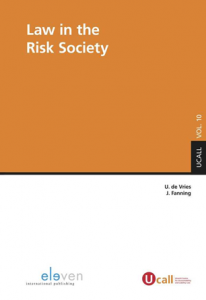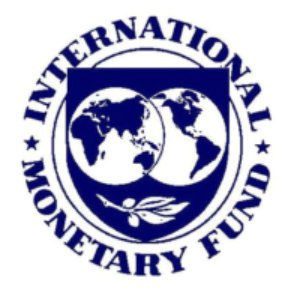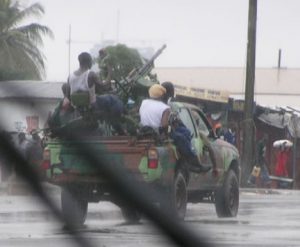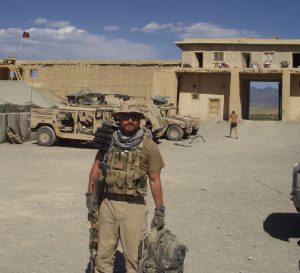
In de bundel Law in the Risk Society (samengesteld uit papers van het Ucallcongres 2015 onder dezelfde naam) wordt het recht bestudeerd vanuit verschillende theoretische en normatieve lenzen waarbij het gedeelde maatschappijtheoretisch kader dat van de risicomaatschappij is, zoals ontwikkeld door de Duitse sociaal-theoreticus Ulrich Beck. In deze blog legt Bald de Vries uit wat de meerwaarde is van deze methodologische benadering van de rechtswetenschap aan de hand van een aantal voorbeelden uit de bundel. Lees verder
Maandelijks archief: mei 2017
Holding private military and security companies to account: from legal to democratic accountability
On 2 May 2017, Jelle Leunis obtained his PhD in political science from the Free University of Brussels (VUB) on the accountability of private military and security companies (PMSCs), a topic that in this past has proved of interest to UCall too. The full title of the thesis is: ‘The regulatory governance of armed force: Holding private military and security companies to account’. I had the honor to be a member of the examination committee. In this post, I set out, and subscribe to Leunis’s view that the fetishization of legal mechanisms to hold PMSCs to account has overshadowed the question of how to involve citizens in PMSC-based security governance. Enhancing the political-democratic accountability of the use of PMSCs has obvious merit, but further research will be needed regarding how such accountability could be enhanced for affected populations in conflict areas.
AMERICA FIRST, THE NETHERLANDS SECOND? Over overlappende rechtsmacht over corruptie door multinationals
 Corruptie wordt steeds meer gezien als een groot internationaal maatschappelijk probleem: het beperkt internationale groei, beschadigt het vertrouwen in instituties, vergroot de kloof tussen arm en rijk en het zet bestaande maatschappelijk spanningen op scherp. Internationaal opererende bedrijven worden dan ook steeds vaker ter verantwoording geroepen voor corruptie in het buitenland. Toch zijn er tussen landen nog grote verschillen in de handhaving van anti-corruptie wetgeving. De Verenigde Staten en Nederland hebben overlappende rechtsmacht over een groot deel van de multinationaal opererende bedrijven. Toch gaan beide landen anders om met hun wetgeving over corruptie. Voor de vergelijking wordt het concept rechtscultuur gebruikt: de ideeën, houdingen, waarden en meningen over het recht die heersen in een samenleving.
Corruptie wordt steeds meer gezien als een groot internationaal maatschappelijk probleem: het beperkt internationale groei, beschadigt het vertrouwen in instituties, vergroot de kloof tussen arm en rijk en het zet bestaande maatschappelijk spanningen op scherp. Internationaal opererende bedrijven worden dan ook steeds vaker ter verantwoording geroepen voor corruptie in het buitenland. Toch zijn er tussen landen nog grote verschillen in de handhaving van anti-corruptie wetgeving. De Verenigde Staten en Nederland hebben overlappende rechtsmacht over een groot deel van de multinationaal opererende bedrijven. Toch gaan beide landen anders om met hun wetgeving over corruptie. Voor de vergelijking wordt het concept rechtscultuur gebruikt: de ideeën, houdingen, waarden en meningen over het recht die heersen in een samenleving.
Lees verder
Human rights violations by international organizations: exploring the responsibility of member states
 On 28 April 2017, Sofia Barros successfully defended her PhD at Leuven University on the topic of the responsibility of member states in the context of their participation in international organizations (full title: “Governance as Responsibility – Member State Participation in International Financial Institutions and the Quest for Effective Human Rights Protection”). I had the honor of being the co-supervisor of this thesis. In this post, I draw attention to the novelty of the author’s conceptualization of member states as autonomous actors within international organizations. Her approach is unique in that she demonstrates that conferring separate legal personality on international organizations does not negate the abiding role played by member states in those international organizations, with the attendant consequences for responsibility. Lees verder
On 28 April 2017, Sofia Barros successfully defended her PhD at Leuven University on the topic of the responsibility of member states in the context of their participation in international organizations (full title: “Governance as Responsibility – Member State Participation in International Financial Institutions and the Quest for Effective Human Rights Protection”). I had the honor of being the co-supervisor of this thesis. In this post, I draw attention to the novelty of the author’s conceptualization of member states as autonomous actors within international organizations. Her approach is unique in that she demonstrates that conferring separate legal personality on international organizations does not negate the abiding role played by member states in those international organizations, with the attendant consequences for responsibility. Lees verder
Dutch Court of Appeal holds businessman liable for complicity in war crimes
 On 21 April 2017, the Court of Appeal of ‘s-Hertogenbosch convicted Dutch businessman Guus Kouwenhoven to 19 years of imprisonment for, inter alia, complicity in war crimes committed in Liberia. In the late 1990s Kouwenhoven had provided arms to the murderous regime of the Liberian president Charles Taylor, who was later convicted to 50 years of imprisonment by the Special Court of Sierra Leone. This is a rare example of a domestic court holding a corporate actor liable for involvement in the commission of international crimes abroad. In line with the recent Corporate Crimes Principles of the International Corporate Accountability Roundtable, a corporate actor is defined as a ‘corporate entity or individual acting on behalf of a corporate entity’.. It bears emphasis that Kouwenhoven, while directing a corporate entity, was convicted in his individual capacity. In the Netherlands Kouwenhoven is not a unique case; earlier, another businessman, Frans van Anraat, who had sold raw materials for the production of chemical weapons to Saddam Hussein, was also convicted of complicity in war crimes (upheld on appeal). The Kouwenhoven case highlights again the potential of complicity to hold criminally to account Western corporate actors who ‘recklessly’ accept the risk that their business dealings with warlords could contribute to the commission of international crimes. The next challenge will be how to prosecute corporate entities rather than individual businessmen for their involvement in international crimes.
On 21 April 2017, the Court of Appeal of ‘s-Hertogenbosch convicted Dutch businessman Guus Kouwenhoven to 19 years of imprisonment for, inter alia, complicity in war crimes committed in Liberia. In the late 1990s Kouwenhoven had provided arms to the murderous regime of the Liberian president Charles Taylor, who was later convicted to 50 years of imprisonment by the Special Court of Sierra Leone. This is a rare example of a domestic court holding a corporate actor liable for involvement in the commission of international crimes abroad. In line with the recent Corporate Crimes Principles of the International Corporate Accountability Roundtable, a corporate actor is defined as a ‘corporate entity or individual acting on behalf of a corporate entity’.. It bears emphasis that Kouwenhoven, while directing a corporate entity, was convicted in his individual capacity. In the Netherlands Kouwenhoven is not a unique case; earlier, another businessman, Frans van Anraat, who had sold raw materials for the production of chemical weapons to Saddam Hussein, was also convicted of complicity in war crimes (upheld on appeal). The Kouwenhoven case highlights again the potential of complicity to hold criminally to account Western corporate actors who ‘recklessly’ accept the risk that their business dealings with warlords could contribute to the commission of international crimes. The next challenge will be how to prosecute corporate entities rather than individual businessmen for their involvement in international crimes.
Lees verder
Bewegingen van overheidsaansprakelijkheidsrecht
 Een van de belangrijkste ontwikkelingen in en op de grenzen van het aansprakelijkheidsrecht betreft het overheidsaansprakelijkheidsrecht. In een groot aantal landen, waaronder Nederland, zijn belangrijke wettelijke hervormingen op het terrein van overheidsaansprakelijkheidsrecht doorgevoerd. Voorts is er sprake van een aanhoudende stroom van – voor de ontwikkeling van het aansprakelijkheidsrecht – belangrijke jurisprudentie hier te lande en daarbuiten. De afgelopen decennia heeft bovendien het Hof van Justitie van de Europese Unie een uniform stelsel van lidstaataansprakelijkheid voor schending van Unierecht ontwikkeld en heeft ook de rechtspraak van het Europese Hof van de Rechten van de Mens het overheidsaansprakelijkheidsrecht beïnvloed en geëuropeaniseerd. Te midden van deze bewegingen rijst de vraag of het Nederlandse overheidsaansprakelijkheidsrecht in of uit de pas loopt met andere rechtsstelsels, of Nederland met andere woorden een inhaalslag heeft te maken.
Een van de belangrijkste ontwikkelingen in en op de grenzen van het aansprakelijkheidsrecht betreft het overheidsaansprakelijkheidsrecht. In een groot aantal landen, waaronder Nederland, zijn belangrijke wettelijke hervormingen op het terrein van overheidsaansprakelijkheidsrecht doorgevoerd. Voorts is er sprake van een aanhoudende stroom van – voor de ontwikkeling van het aansprakelijkheidsrecht – belangrijke jurisprudentie hier te lande en daarbuiten. De afgelopen decennia heeft bovendien het Hof van Justitie van de Europese Unie een uniform stelsel van lidstaataansprakelijkheid voor schending van Unierecht ontwikkeld en heeft ook de rechtspraak van het Europese Hof van de Rechten van de Mens het overheidsaansprakelijkheidsrecht beïnvloed en geëuropeaniseerd. Te midden van deze bewegingen rijst de vraag of het Nederlandse overheidsaansprakelijkheidsrecht in of uit de pas loopt met andere rechtsstelsels, of Nederland met andere woorden een inhaalslag heeft te maken.
Lees verder
De zaak Wood v Capita Insurance Services [2017] UKSC 24 inzake uitleg van een commercieel contract: een onvoordelige ‘bargain’ is de eigen verantwoordelijkheid van partijen
 Uitleg van bedingen in commerciële contracten tussen professionele partijen: dat is ingewikkelde thematiek, zowel in Nederland als in Engeland. In deze blog wordt aan de hand van een zeer recente uitspraak van het Supreme Court van het Verenigd Koninkrijk aangestipt hoe het Engelse recht omgaat met deze problematiek, waarbij zal blijken dat partijen volgens het Supreme Court een grote eigen verantwoordelijkheid voor de formulering van contractsbepalingen hebben. De rechter schiet een partij die niet stevig genoeg heeft onderhandeld over de contractvoorwaarden, niet achteraf te hulp, zo zal blijken. Voor de Nederlandse jurist is deze uitspraak interessant, omdat men zich bewust moet zijn van de consequenties als een contract naar Engels recht moet worden beoordeeld.
Uitleg van bedingen in commerciële contracten tussen professionele partijen: dat is ingewikkelde thematiek, zowel in Nederland als in Engeland. In deze blog wordt aan de hand van een zeer recente uitspraak van het Supreme Court van het Verenigd Koninkrijk aangestipt hoe het Engelse recht omgaat met deze problematiek, waarbij zal blijken dat partijen volgens het Supreme Court een grote eigen verantwoordelijkheid voor de formulering van contractsbepalingen hebben. De rechter schiet een partij die niet stevig genoeg heeft onderhandeld over de contractvoorwaarden, niet achteraf te hulp, zo zal blijken. Voor de Nederlandse jurist is deze uitspraak interessant, omdat men zich bewust moet zijn van de consequenties als een contract naar Engels recht moet worden beoordeeld.
Lees verder


